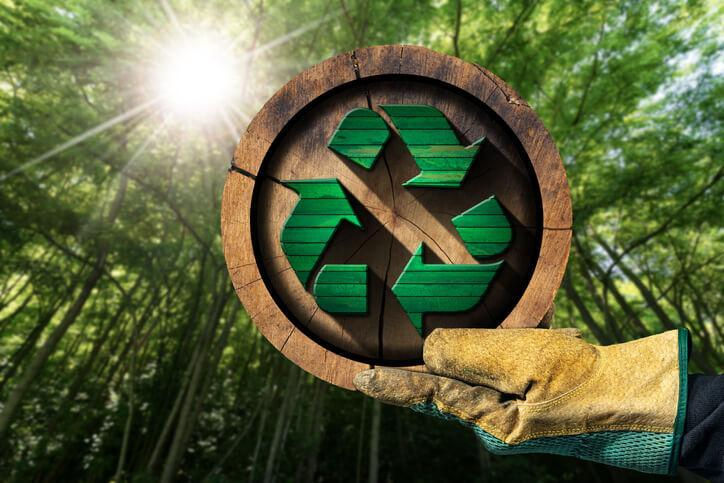Empowering Change: How You Can Help Drive Real Sustainability
- Feb 20, 2025
- 4 min read
Updated: Jul 22, 2025

Welcome back to One Less Bag, where today we discuss a crucial issue in the world of sustainability—greenwashing. As the push for eco-friendly alternatives gains momentum, we’re seeing more companies touting their “green” initiatives, but not all of them are what they seem. While some brands are genuinely making a difference by reducing environmental harm, others are taking advantage of the movement with misleading claims. In today’s blog, we’ll explore how to identify true sustainability in the marketplace, the dangers of greenwashing, and how you can be part of the solution to the global plastic crisis. Let’s dive in!
As we look around, it's clear that we're at a tipping point when it comes to the environment. Plastic pollution is choking our oceans, piling up in landfills, and harming wildlife. But here’s the good news: change is possible. Each one of us holds the power to make a real difference in the global shift toward sustainability. But as we lean into greener practices, we also need to be cautious about a growing concern in the marketplace—greenwashing.
What is Greenwashing?
Greenwashing is when a company falsely portrays its products or services as environmentally friendly to capitalize on the rising demand for sustainable solutions. It's a classic case of marketing tactics over substance. These companies often make lofty claims about being eco-friendly, but behind the shiny slogans and green packaging, there may be little to no real action taken to reduce their environmental impact.
According to a 2023 study by the Environmental Protection Agency (EPA), around 40% of consumers have reported encountering greenwashed products—products marketed as environmentally conscious that fail to live up to their claims. This trend is concerning because it misleads consumers, erodes trust, and ultimately stifles progress. Real sustainability is not just about clever branding; it’s about taking concrete actions that lead to lasting change.

Why Should We Care?
The problem with greenwashing is that it makes it harder for consumers to identify products that are genuinely contributing to environmental preservation. When companies make false claims, it creates confusion and skepticism among the public. People may become disillusioned with the idea of making eco-conscious choices, thinking that all “green” products are just another marketing gimmick.
But this is exactly why it’s so important to support companies that are truly committed to reducing their environmental footprint. Genuine sustainable businesses aren’t just making claims—they’re making measurable impacts.
A Path to True Sustainability: The Role of Compostable Products
Take Plastech, for example. We focus on creating zero plastic, home compostable products that are not just a marketing tool—they’re a tangible solution to reducing plastic waste. Unlike plastic, which can take hundreds of years to break down, compostable products naturally decompose in a home compost bin within 180 days, leaving behind nothing but nutrient-rich organic matter. This is the type of change we need in the world, and it’s one that’s grounded in science and innovation.
Statistics show that plastic waste is a massive global issue. According to the United Nations, around 300 million tons of plastic are produced every year, and only 9% of it gets recycled. The rest ends up in landfills, rivers, or oceans, where it harms ecosystems and pollutes the environment. Meanwhile, the global composting market is growing rapidly—valued at $7.35 billion in 2020 and expected to grow by 16% annually through 2027. This is a clear indication that people are actively seeking alternatives to plastic and are ready to adopt more sustainable practices.
But the shift isn’t just about using alternative materials like compostable products. It’s also about fostering a broader mindset of sustainability—one that prioritizes transparency, innovation, and accountability.
How You Can Make a Difference
So, how can you, as a consumer, help drive this change?
Be an Informed Shopper: Before making a purchase, ask yourself—does this company back up its claims with transparency? Do they provide clear evidence of their sustainable practices? A brand committed to real environmental change will have certifications and detailed information on the sourcing and lifecycle of its products.
Support the Right Companies: Seek out brands that are actively reducing their environmental impact. For example, choose companies like Plastech that not only make compostable products but also focus on complete transparency about their manufacturing processes and the sustainability of their materials.
Challenge Greenwashing: Don’t be afraid to call out greenwashed products. If a brand claims to be “eco-friendly” but doesn’t back it up with concrete action or fails to provide evidence of their sustainability efforts, it’s up to us as consumers to hold them accountable.
Reduce, Reuse, Recycle: While shifting to compostable products is a huge step in the right direction, the larger fight against plastic waste includes reducing overall consumption, reusing products where possible, and recycling responsibly.
The Road Ahead: A Future Powered by True Sustainability
The shift away from plastic and toward sustainable alternatives is no longer a distant dream—it’s happening now. But to ensure we’re moving in the right direction, we must be vigilant about the products we support. When we choose to back companies that are genuinely dedicated to reducing environmental harm—like Plastech—we’re not just buying products; we’re voting with our dollars for a cleaner, greener future.
The journey ahead is exciting, but it requires all of us to be proactive, informed, and committed to real change. Together, we can support innovation, push for greater transparency, and make a meaningful impact on our planet.
Let’s choose wisely, and let’s make sure the future we’re building is truly sustainable—one compostable product at a time.



Comments